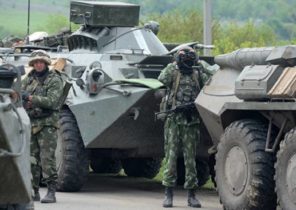For the first time since the exchange began trading oil in another “black Monday”, the may futures of “black gold” of the WTI were sold at a negative price. Such pricing means that manufacturers more profitable to pay for the sale of goods than to keep it almost full storage or to abruptly suspend production.
Contrary to public opinion of the twentieth of April can not be considered the end of the oil era. The collapse of prices for may futures had occurred on the last day of trading on the exchange: in a crowded storage traders de-facto “merged” junk stocks.
Despite the fact that it is now June futures in the range of fifteen dollars, and the spot price of twenty two dollars per barrel, total collapse in the future should be expected.
The price shock was caused by a number of factors: a record decline in demand for oil due to coronavirus in the United States, which is one of the most affected covid-19 government, overflow storage of oil and the disappointing ratings recent deals OPEC+ — on the background of the established practice of the implementation of commitments in the framework of agreements of the cartel only at 80%.
The promise of a gradual decline in production at ten million barrels per day failed to reassure the market.
At a time when it is difficult to predict the next oil “storms” and the actions that can go the main exporting States in order to maintain high prices, Ukraine needs to understand how these challenges should be answered.
Minus thirty-seven dollars a barrel: what happens with the oil market
Now Kiev can not boast of any rapid response mechanism, nor an effective critical management: if prices for Ukrainian metals and other elements of the export and changes in connection with fluctuations in the prices of black gold and, in General, of hydrocarbons, the oil market may experience a significant change only after long periods of structural market changes.
The only Ukrainian incumbent Kremenchug refinery receives oil only by the existing medium and long-term contracts — ability to purchase “at the right time” cheap American, Libyan, or any other oil at Ukrtatnafta no.
This in turn makes it impossible to drop prices for domestic gas stations despite a significant jump in the world markets — earn on oil shocks can various traders, but not consumers.
Statement by the Executive Director of Naftogaz Yuriy Vitrenko on storage capabilities of the black gold of other States in domestic oil transportation system, at the Kremenchug refinery or other refineries idle, decommissioned as a good business model risks, and remain declarative without the presence of very important details.
Only the adoption of the law “On minimum stocks of oil and oil products” will provide an opportunity for the state to start accumulation of reserves and the “stock market game” in the market “black gold”.
The adoption of this law is not a possibility, but a duty of Ukraine.
As a member of the Energy community and the signatory of an Association Agreement Kiev has pledged to implement the provisions of Directive 2009/119/EC, which stipulates the need for member States to have available reserves of oil and oil products on devakottai period — this time period is used in particular for members of the International energy Agency.
On the sixth of June 2019 VRU adopted a law that approved the decision of the Association Council between Ukraine and EU about introduction of amendments and additions to Annex XXVII (obligations of Ukraine concerning the convergence in the energy sector).
Among other things, has once again been obliged to implement Directive 2009/119/EC.
Despite the adopted law the question of regulation of the powers of the state licensing of this kind of economic activity, changes in the Tax code or to the law of Ukraine “On state material reserve” remains open.
Without elaborate legal and technical mechanism in all relevant institutions (the Cabinet, minamaneho, the state reserve, the Ministry of economy, Ministry of foreign Affairs), Ukraine that can offer a competitive offer to a foreign state for storage of oil in the oil transportation system but not even able to play the role of effective traders and to respond to sudden changes in the oil market for their own needs.







